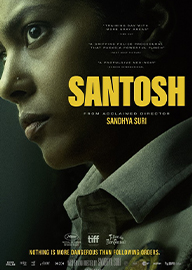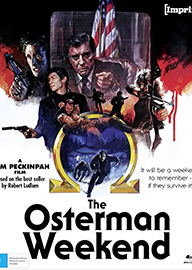One Fine Spring Day
- 7
- Romance
- 2001
- 1h 53m
- 14+
a South Korean romantic drama directed by Hur Jin-ho that explores the delicate and fleeting nature of love. The film follows a sound engineer and a radio producer whose chance meeting blossoms into a tender romance, capturing the subtle joys, insecurities, and heartbreaks of falling in love with lyrical visuals and poignant storytelling.













Comments
0Reviews
0Summery
1Please sign in to comment.
Please sign in to review.
One Fine Spring Day (2001) is a South Korean romantic drama directed by Hur Jin-ho, recognized for his poetic approach to storytelling and sensitive exploration of human emotion. The film follows Sang-woo, a sound engineer, and Eun-su, a radio producer, whose chance encounter gradually evolves into a tender and immersive romance. Unlike conventional melodramas, the narrative unfolds in a deliberate, contemplative pace, emphasizing the subtleties of attraction, emotional vulnerability, and intimacy. From the first meeting in the urban backdrop to shared moments that capture everyday life, the film carefully constructs a world in which love is both fragile and profoundly moving. The characters’ emotional lives are rendered with understated realism, allowing audiences to experience the oscillation between desire, uncertainty, and connection. Every gesture, conversation, and glance becomes significant, reflecting the delicate balance of trust and longing inherent in a budding relationship. The film’s narrative explores how love can inspire joy and simultaneously introduce anxiety, highlighting the tension between personal freedom and emotional attachment, making it a deeply resonant meditation on the human heart.
The romance at the center of One Fine Spring Day is marked by both beauty and impermanence. Sang-woo and Eun-su’s relationship develops naturally, with shared experiences and quiet intimacies illustrating the joy of companionship, while small misunderstandings and unspoken fears introduce tension and vulnerability. The film portrays love as something that must be nurtured, understood, and negotiated, and the fragility of human emotion is emphasized throughout. Hur Jin-ho skillfully depicts both the enchantment of new love and the inevitable disillusionment that can follow, showing how initial passion can wane under the pressures of daily life, miscommunication, and the uncertainties of emotional expression. These dynamics are portrayed without exaggeration, maintaining the realism that makes the characters’ experiences relatable and affecting. The film’s narrative structure avoids melodramatic shortcuts, instead allowing the audience to inhabit the lived experiences of the characters and witness their emotional evolution with both tenderness and empathy.
Visually, One Fine Spring Day captures the ephemeral beauty of life and romance through lyrical cinematography and attentive attention to natural details. Outdoor sequences emphasize seasonal changes, particularly the blossoming spring, which mirrors the growth and vibrancy of the central relationship. Interiors are depicted with soft, natural lighting that conveys warmth and intimacy, while lingering shots and contemplative framing allow viewers to absorb the subtleties of character interactions and the emotional resonance of everyday moments. The film’s sound design, particularly Sang-woo’s work as a sound engineer, is integral to the storytelling, highlighting how auditory perception shapes memory, connection, and emotional response. Music is used sparingly and thoughtfully, augmenting the mood rather than dominating it, which complements the film’s quiet, reflective tone. This combination of visual poetry, nuanced performance, and attentive soundscape creates a cinematic experience that is both immersive and emotionally rich, engaging viewers not just with plot, but with mood, atmosphere, and subtle reflection.
Ultimately, One Fine Spring Day is a meditation on love, impermanence, and emotional authenticity. The film captures the exhilaration, tenderness, and inevitable heartbreak of romantic connection, reminding audiences that love is a lived experience that is both fragile and transformative. The relationship between Sang-woo and Eun-su embodies the delicate interplay of hope, fear, desire, and miscommunication that defines human connection. Hur Jin-ho’s film does not resolve all questions or provide easy answers; instead, it leaves viewers reflecting on the lasting impact of fleeting experiences and emotional intimacy. Its enduring appeal lies in its understated realism, poetic visuals, and deep emotional resonance, making One Fine Spring Day a standout example of South Korean romantic drama and an essential work for audiences who appreciate slow-paced, character-driven films that explore the complexities of love, longing, and human vulnerability. The film’s careful balance of beauty, melancholy, and reflection ensures its place as a timeless, contemplative work that continues to influence and inspire fans of introspective cinema.